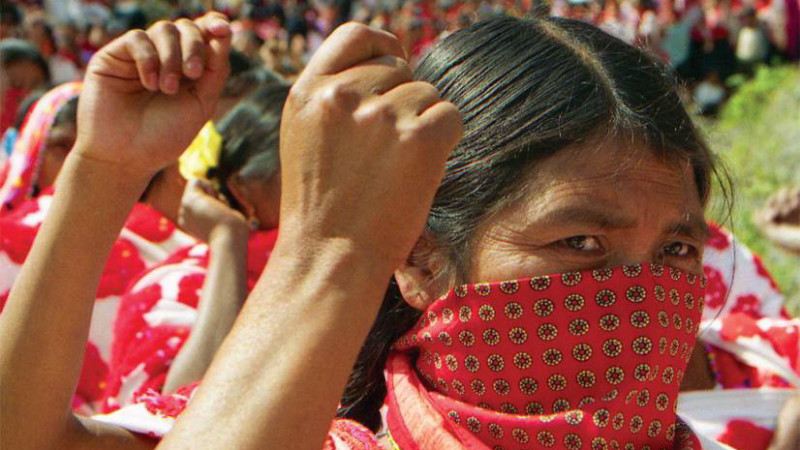On the first day of 1994, as the North American Free Trade Agreement laws first went into effect, a group of Mexican rebels declared war against their government. Several thousand Zapatistas descended on towns throughout Chiapas, demanding revolution and resistance against globalization. They wanted radical democracy, and for 20 years they have not only sustained themselves, they have built an autonomous society with healthcare, education and sustainable agriculture.
One major and often untold aspect of the Zapatista movement is that of women’s leadership, a topic Hilary Klein covers inclusively in her new book, Compañeras: Zapatista Women’s Stories (Seven Stories Press, 2015). The Eric Quezada Center for Culture and Politics in San Francisco celebrates the launch of Klein’s work with a book reading and signing, a panel discussion with Tere Almaguer, Caleb Duarte, and Roxanne Dunbar-Ortiz, and live music from Francisco Herrera on Apr. 23.
In Compañeras, Klein features firsthand stories of Zapatista women she interviewed while working with women’s projects in Chiapas for six years. Stories illustrate the major changes women experienced after leaving their homes and traditional gender roles to join the uprising and the empowerment and freedom that followed.
The tales range from new access to health care and health education, to tales of women in leadership and their changed roles within the family. Compañeras provides an all-encompassing portrait of the positive personal and societal revolution that the women, as equal, key players in the Zapatista movement, have created and experienced. In Chiapas, the role of women as a collective entity has transformed their society. Furthermore, women’s equality isn’t limited to the Zapatista communities, but also impacts civilians living in more traditional neighboring communities.
The Zapatista society isn’t perfect and remains a work in progress, but as Klein describes it – particularly in regards to women’s equality – there is much to be learned from them about creating a radically safe, empowered society for women and girls.


